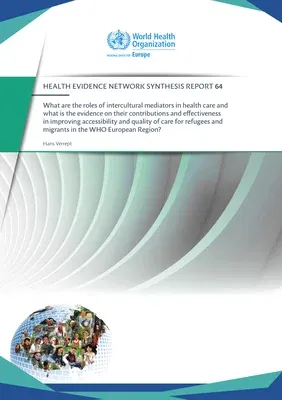Centers of Disease Control
(Author)What Are the Roles of Intercultural Mediators in Health Care and What Is the Evidence on Their Contributions and Effectiveness in Improving AccessibilPaperback, 1 October 2019

Qty
1
Turbo
Ships in 2 - 3 days
Only 4 left
Free Delivery
Cash on Delivery
15 Days
Free Returns
Secure Checkout

Part of Series
Health Evidence Network Synthesis Report
Print Length
60 pages
Language
English
Publisher
World Health Organization
Date Published
1 Oct 2019
ISBN-10
9289054352
ISBN-13
9789289054355
Description
Product Details
Author:
Book Format:
Paperback
Country of Origin:
CH
Date Published:
1 October 2019
ISBN-10:
9289054352
ISBN-13:
9789289054355
Language:
English
Pages:
60
Publisher: